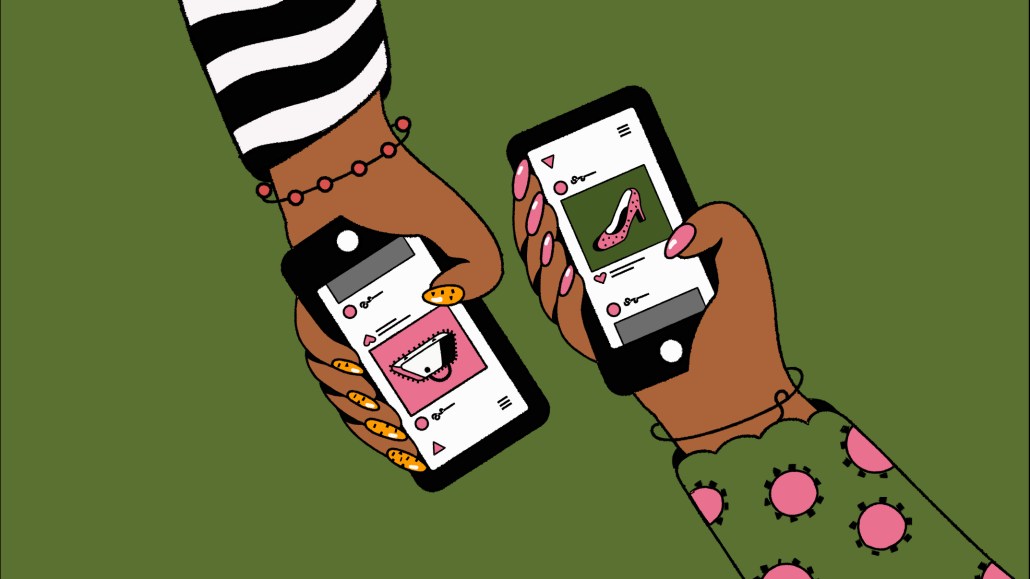Save 50% on a 3-month Digiday+ membership. Ends Dec 5.
Vice Media Group brings back program for small, Black-owned businesses

Vice Media Group will once again offer free marketing and creative services to Black-owned small businesses under a program with the National Urban League.
Called Black+, the program is returning for its second year, with a smaller group. While five businesses will be selected to take part this year, 12 were chosen last year.
–Five Black-owned small businesses –$50,000 in ad inventory –Guaranteed editorial coverage across VMG brands –Access to custom Vice Insights research –Creative consulting and custom ad from VMG’s creative agency Virtue –Mentorship and business consulting with NUL
The businesses selected for Black+ will receive $50,000 worth of pro-bono ad inventory in the form of banner ads and pre-roll — the same amount as last year — and guaranteed editorial coverage across Vice, Refinery29 and i-D. The companies will also receive access to custom research from Vice Insights. VMG and its creative agency Virtue will consult with each business on creative services, such as marketing material creation, branding and social media. Virtue will create a custom ad for each business.
VMG and NUL are looking for businesses that can create new jobs and build community, said Nadja Bellan-White, global CMO of Vice Media Group.
Last year, campaigns ran from October 2020 to October 2021 across Vice, Refinery29 and i-D resulted in over 33.8 million ad impressions and 350,000 clicks to the businesses’ digital channels, according to VMG.
The program is more selective this year to offer “one-on-one attention,” Bellan-White said. “We need to really spend time with each and every one of the businesses, and they require a lot. My belief is quality is better than quantity.”
Ad position: web_incontent_pos1
NUL, a civil rights organization advocating for economic empowerment and social justice, will provide mentorship and business consulting services to the selected businesses. The organization will also assist with the Black+ selection process and program structure.
Black entrepreneurs can apply to be a part of Black+ this year, as long as their businesses are for-profit, at least 51% Black-owned, in operation for more than 6 months, have a shoppable website and can sell or distribute their products or services throughout the U.S.
Black+ was created last March to help Black entrepreneurs, who often face a lack of access to funding, especially as the pandemic disproportionately took a toll on Black-owned small businesses, Bellan-White said.
Vice is reportedly looking for ways to cut business costs to improve its profit margin this year. When asked if this was a factor in selecting fewer businesses to be part of Black+ this year, given the diversion of resources from VMG’s marketing and media teams it requires, a VMG spokesperson denied a connection. “We want to be able to focus our attention to make a legitimate difference. Quality over quantity,” they said.
How Black+ has boosted Black-owned businesses
Ad position: web_incontent_pos2
The founders of companies that participated in last year’s program applauded VMG and NUL for bringing it back another year, though they did not provide financial details on how their businesses benefitted from the program.
“It’s good they’re going in that direction,” said Kenya Joseph, founder and owner of perfume and body care company Perfect Blue Alchemy, one of the businesses chosen for Black+ last year, who thinks having fewer participants in Black+ will help alleviate small business owners’ balancing of business operations with the responsibilities of the program. Having more direct support with fewer businesses in Black+ is “going to be even more successful,” she said.
Alesia Miller, founder of Soul Brew Kombucha, another company that was part of Black+ last year, agreed: “It’s wonderful to have the resources, but as a business owner with little time, help with the execution of ideas and new information can prove as priceless.”
In addition to Perfect Blue Alchemy and Soul Brew Kombucha, the businesses chosen for Black+ last year include: Anima Iris, Cee Cee’s Closet NYC, Girl’s Vacation Club, Glory, Health in Her Hue, My Home Pathway, On the Go Jo Coffee, Pholk Beauty, Planet FWD Moonshot and PUR Home.
“The amount of money value — at the very least — of the marketing aspects? Massive. It was a huge opportunity,” said Joseph.
Joseph said the program was “really hands-on,” and helped her business with its marketing and promotional efforts. The campaign analytics also helped her understand “what markets did better than others,” she said. Joseph also received unbranded digital assets that she can run across other digital platforms and was connected with business mentors.
Black+ provides “a better understanding in putting your own [marketing] plan together and the things that you need to know or think about. That was really, really helpful,” Joseph said.
Miller said the ability to test out new markets and learn about the process of preparing professional marketing campaigns was especially helpful for her business.
“I almost wish we were doing this now because the landscape of small business has changed, with all the challenges we have in our country right now. It was such a great experience and being able to extend it or do it again would be hugely helpful,” Joseph added.
More in Media

What publishers are wishing for this holiday season: End AI scraping and determine AI-powered audience value
Publishers want a fair, structured, regulated AI environment and they also want to define what the next decade of audience metrics looks like.

Digiday+ Research Subscription Index 2025: Subscription strategies from Bloomberg, The New York Times, Vox and others
Digiday’s third annual Subscription Index examines and measures publishers’ subscription strategies to identify common approaches and key tactics among Bloomberg, The New York Times, Vox and others.

From lawsuits to lobbying: How publishers are fighting AI
We may be closing out 2025, but publishers aren’t retreating from the battle of AI search — some are escalating it, and they expect the fight to stretch deep into 2026.
Ad position: web_bfu



